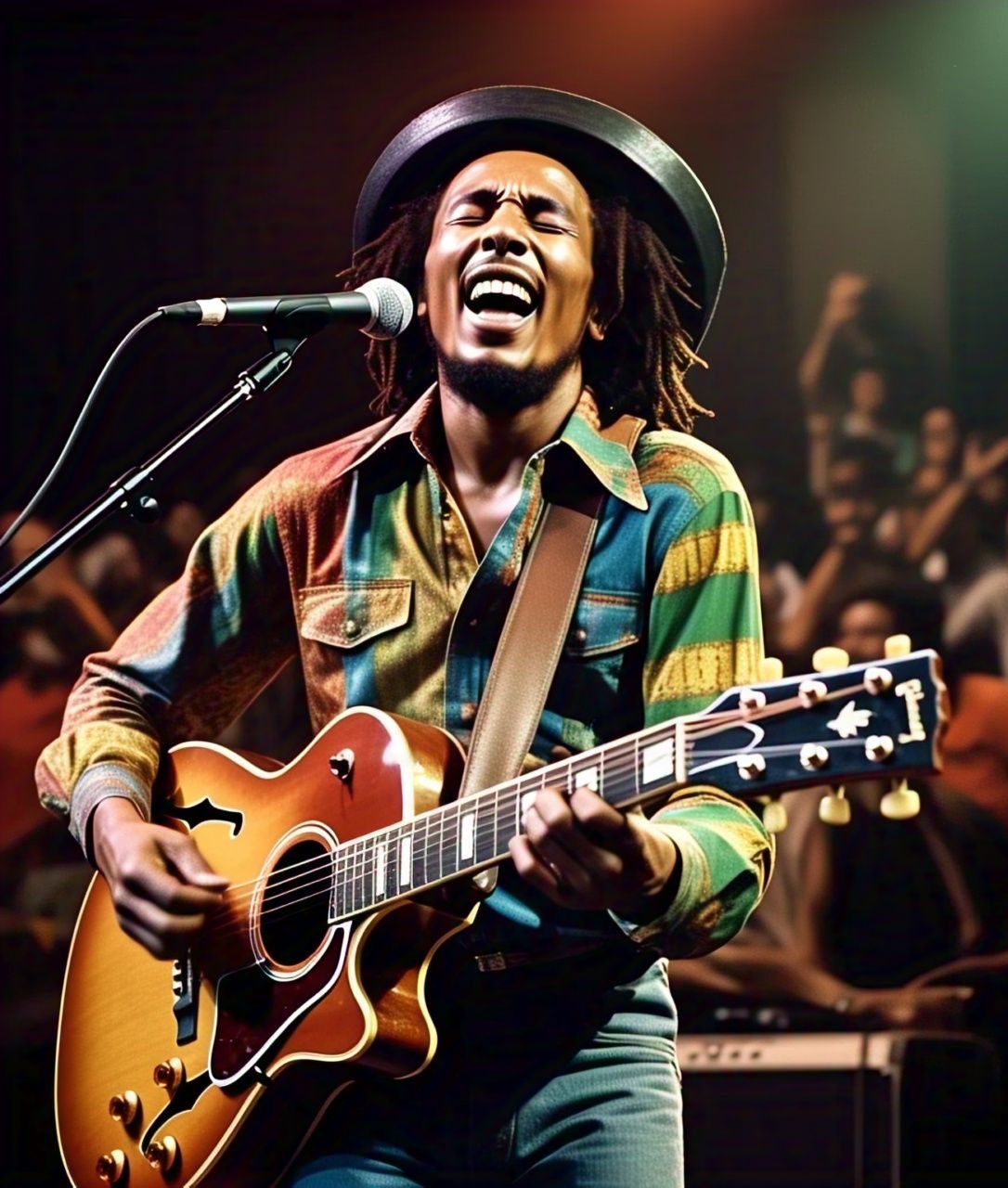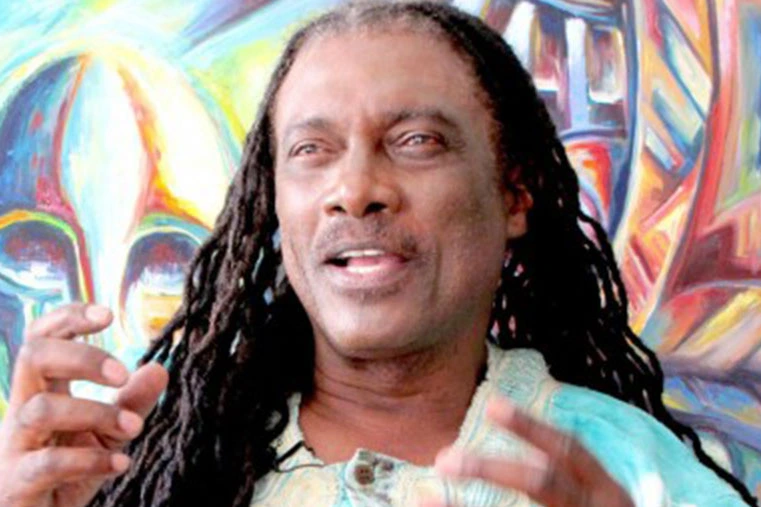By Frantz Benoit
The story of Bob Marley is not just the story of a musician; it’s the story of a revolutionary, a prophet, and a man who turned his pain into power. Born Robert Nesta Marley on February 6, 1945, in the rural village of Nine Mile, Jamaica, Marley emerged from humble beginnings to become the undisputed king of reggae and a voice for the oppressed. His music was a weapon, his life a testament to resilience, and his legacy a beacon of hope for generations to come.
The Early Years: From Nine Mile to Trench Town
Bob Marley’s childhood was shaped by poverty and the absence of his white father, Norval Marley, a British naval captain who rarely acknowledged him. His mother, Cedella Booker, moved them to Trench Town, a gritty neighborhood in Kingston, where the rhythms of life were harsh but the spirit of the people was unbreakable. It was here, amidst the zinc fences and concrete yards, that Marley found his calling.
Trench Town was a melting pot of sounds—ska, rocksteady, and the emerging reggae beat. Young Bob, with his guitar and his dreams, began writing songs that reflected the struggles and hopes of his community. Alongside his friends Bunny Wailer and Peter Tosh, he formed The Wailing Wailers, a group that would later become the heartbeat of reggae music.
The Rise of a Legend
The 1970s marked Marley’s ascent from local hero to global icon. With hits like Stir It Up, No Woman, No Cry, and I Shot the Sheriff, Marley and The Wailers brought reggae to the world stage. But Marley wasn’t just making music; he was crafting anthems for the disenfranchised. His lyrics were a call to arms, a plea for unity, and a celebration of African identity.
In 1975, Marley released Natty Dread, an album that solidified his status as a cultural force. Songs like Rebel Music (3 O’Clock Road Block) and Them Belly Full (But We Hungry) spoke directly to the struggles of the poor and the oppressed. His music was raw, real, and unapologetically political.
The Rastafarian Prophet
Marley’s conversion to Rastafarianism in the late 1960s was a turning point in his life and music. The movement, which emerged in Jamaica in the 1930s, emphasized African pride, spiritual enlightenment, and resistance to colonialism—known as Babylon. For Marley, Rastafarianism was more than a religion; it was a way of life.
His dreadlocks became a symbol of defiance, his lyrics a sermon. Songs like Rastaman Vibration and Zimbabwe (written in support of African liberation movements) reflected his deep connection to the Rastafarian faith and its teachings. Marley wasn’t just singing about peace and love; he was preaching it.
The Attempted Assassination and the One Love Concert
In 1976, just days before a free concert meant to ease political tensions in Jamaica, Marley was shot in his home. The attack, widely believed to be politically motivated, left him wounded but undeterred. Two days later, he took the stage at the Smile Jamaica Concert, bandaged but defiant, and delivered a performance that would go down in history.
Two years later, he returned to Jamaica for the One Love Peace Concert, where he famously brought together rival political leaders Michael Manley and Edward Seaga on stage, holding their hands in a gesture of unity. It was a moment that encapsulated Marley’s mission: to heal a divided world through music.
The Final Years: A Legacy Cemented
By the late 1970s, Marley was a global superstar, but his health was failing. Diagnosed with acral lentiginous melanoma, a form of skin cancer, he refused to let the disease slow him down. His final album, Uprising, released in 1980, included classics like Redemption Song, a hauntingly beautiful anthem of freedom and self-liberation.
On May 11, 1981, at the age of 36, Bob Marley passed away in Miami, Florida. His final words to his son Ziggy were, “Money can’t buy life.”
The Eternal Legacy
Bob Marley’s death was not the end; it was the beginning of a legend. His music continues to resonate across the globe, inspiring movements for social justice, racial equality, and spiritual awakening. From the streets of Kingston to the halls of the United Nations, his message of One Love remains a universal call for peace and unity.
Marley was more than a musician; he was a revolutionary, a philosopher, and a prophet. His life was a testament to the power of art to transform the world. As he once sang, “The truth is, everyone is going to hurt you. You just got to find the ones worth suffering for.” For Bob Marley, that “one” was humanity itself.
Bob Marley’s Top 5 Essential Tracks
- Redemption Song
- No Woman, No Cry
- One Love / People Get Ready
- Get Up, Stand Up
- Three Little Birds
Final Word: Bob Marley’s music is timeless, his spirit unbreakable, and his legacy eternal. As the world continues to grapple with division and inequality, his words and melodies remind us that, in the end, love will always conquer hate.
One love, one heart, let’s get together and feel all right.



